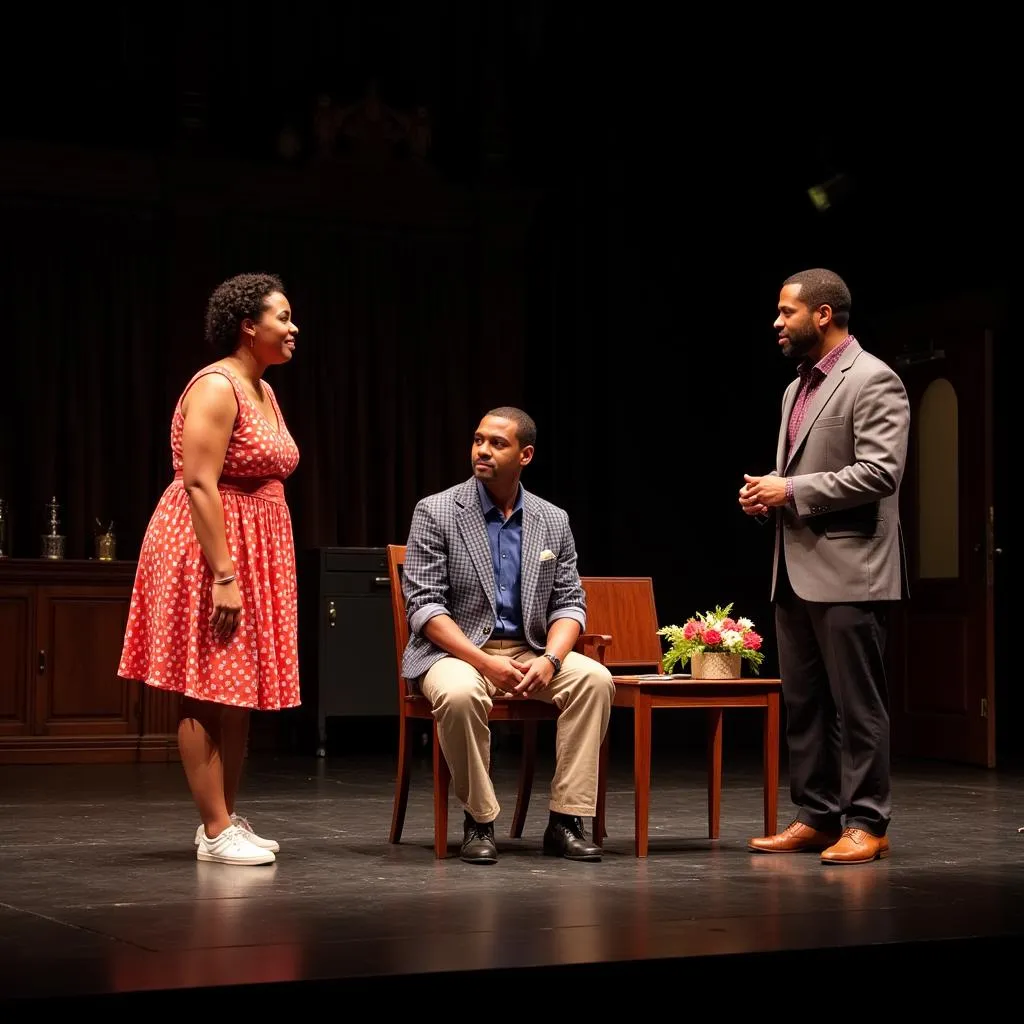African American Plays in 2019: A Renaissance on Stage
2019 proved to be a powerful year for African American voices in theater, with a diverse array of productions showcasing the richness and complexity of Black experiences. From Broadway stages to intimate off-Broadway venues, these plays captivated audiences with their compelling narratives, dynamic characters, and thought-provoking themes.
 African American playwright on Broadway in 2019
African American playwright on Broadway in 2019
A Year of Critical Acclaim and Audience Engagement
One of the most notable aspects of African American plays in 2019 was their widespread critical acclaim. Works like Jeremy O. Harris’s “Slave Play” and Jackie Sibblies Drury’s “Fairview” garnered numerous awards and nominations, sparking conversations about race, identity, and social justice that resonated far beyond the theater. This recognition highlighted the artistic merit and cultural significance of these productions, solidifying their place in the contemporary theatrical landscape.
Moreover, 2019 saw a surge in audience engagement with African American plays. Theaters reported sold-out shows and extended runs, demonstrating a growing appetite for stories that center Black perspectives. This trend reflected a broader cultural shift towards greater representation and inclusion in the arts, with audiences actively seeking out diverse voices and narratives.
Exploring Themes of Identity, Family, and Social Justice
The thematic depth of African American plays in 2019 was another defining feature. Many productions delved into the complexities of Black identity, exploring the intersectionality of race, gender, sexuality, and class. Works like Tarell Alvin McCraney’s “Choir Boy” and Dominique Morisseau’s “Pipeline” examined the challenges and triumphs of Black masculinity, while Lynn Nottage’s “Sweat” offered a poignant look at the impact of economic hardship on working-class communities.
 A scene from an African American play in 2019 depicting a family
A scene from an African American play in 2019 depicting a family
Family dynamics also took center stage in many African American plays of 2019. From the joyous celebrations to the heart-wrenching conflicts, these productions captured the nuances of Black family life with authenticity and empathy. The enduring bonds and intergenerational struggles explored in these plays resonated deeply with audiences, highlighting the universality of these experiences.
Social justice remained a prominent theme, with playwrights tackling issues like racial profiling, police brutality, and mass incarceration. These productions served as powerful indictments of systemic racism and its devastating impact on Black communities. Through their art, these playwrights ignited conversations and inspired action, urging audiences to confront these injustices and work towards a more equitable future.
A Legacy of Storytelling and Cultural Impact
The success of African American plays in 2019 underscored the enduring power and importance of Black storytelling. These productions not only entertained but also educated, challenged, and inspired. They provided a platform for marginalized voices to be heard, fostering empathy, understanding, and social change. The impact of these plays extended far beyond the stage, leaving an indelible mark on the cultural landscape.
As we move forward, it is crucial to continue supporting and celebrating the work of African American playwrights. By amplifying these voices and engaging with their stories, we can contribute to a more just and equitable society where all perspectives are valued and celebrated.
Conclusion
The year 2019 marked a significant moment for African American plays, showcasing the exceptional talent, creativity, and impact of Black artists in theater. These productions left an indelible mark on the cultural landscape, sparking essential conversations and inspiring audiences with their powerful narratives and thought-provoking themes. The legacy of these plays will continue to shape the future of American theater, ensuring that Black voices remain central to the stories we tell and the conversations we have.

